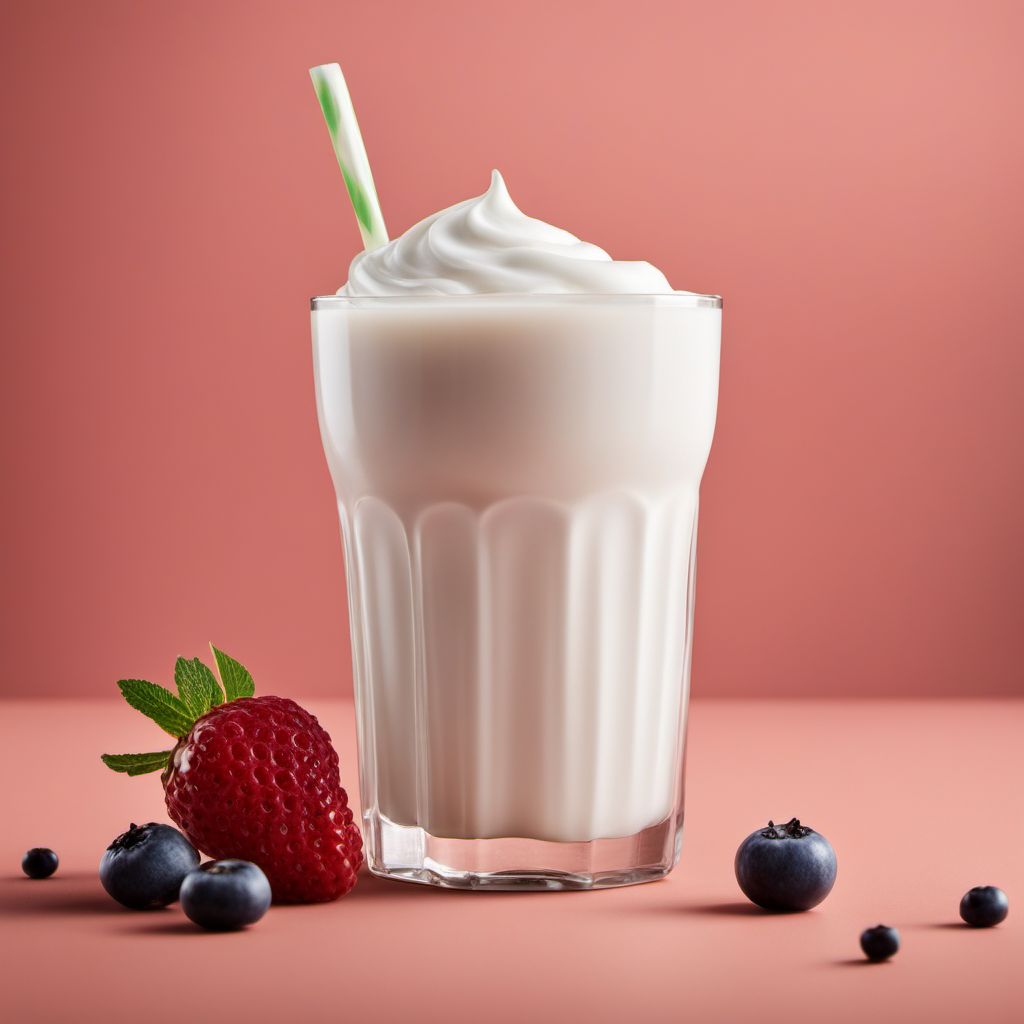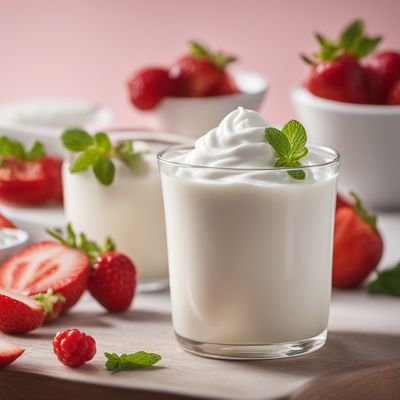
Ingredient
Yoghurt drinks, including sweetened and/or flavoured variants
Sip on the Creamy Goodness: Exploring the World of Yoghurt Drinks
Yoghurt drinks are made by fermenting milk with live bacteria cultures, resulting in a creamy and tangy beverage. They come in various forms, including sweetened and flavored variants, offering a wide range of taste options to suit different preferences. Yoghurt drinks have a smooth and velvety texture, making them a satisfying and refreshing choice. They can be enjoyed on their own or used as a base for smoothies, shakes, or even as a substitute for milk in certain recipes. The creamy appearance and vibrant colors of flavored yoghurt drinks make them visually appealing as well.
Origins and history
Yoghurt, the main ingredient in yoghurt drinks, has a rich history dating back thousands of years. It is believed to have originated in Central Asia, where nomadic tribes discovered the natural fermentation process that turns milk into yoghurt. This traditional method of making yoghurt spread across different cultures and regions, becoming an integral part of various cuisines. Yoghurt drinks, as a modern variation, have gained popularity in recent years due to their convenience and health benefits.
Nutritional information
Yoghurt drinks are a good source of protein, calcium, and probiotics, which promote a healthy digestive system. They also provide essential vitamins and minerals, including vitamin B12, riboflavin, and phosphorus. Depending on the specific variant, yoghurt drinks can range from 100 to 200 calories per serving.
Allergens
Yoghurt drinks may contain allergens such as milk and soy, depending on the specific brand and flavor. Individuals with lactose intolerance or dairy allergies should check the label for any potential allergens.
How to select
When selecting yoghurt drinks, look for brands that use high-quality ingredients and minimal additives. Opt for options that contain live and active cultures, as they provide the beneficial probiotics. Check the expiration date to ensure freshness, and consider choosing low-sugar or unsweetened variants for a healthier option.
Storage recommendations
Yoghurt drinks should be stored in the refrigerator at temperatures below 40°F (4°C) to maintain their freshness and quality. Once opened, they should be consumed within a few days to prevent spoilage.
How to produce
Yoghurt drinks can be produced at home by combining plain yoghurt with desired flavors, such as fruits, honey, or spices, and blending them together. The mixture can then be chilled and enjoyed as a homemade yoghurt drink.
Preparation tips
Yoghurt drinks can be enjoyed straight from the bottle or poured over ice for a refreshing beverage. They can also be used as a base for smoothies by blending them with fruits, vegetables, and other ingredients. For a creamier texture, yoghurt drinks can be frozen into popsicles or used as a topping for desserts.
Culinary uses
Yoghurt drinks are commonly enjoyed as a standalone beverage, but they can also be used in various culinary applications. They can be used as a marinade for meats, a creamy dressing for salads, or as an ingredient in baked goods to add moisture and a tangy flavor.
Availability
Yoghurt drinks, including sweetened and flavored variants, are commonly available in supermarkets, grocery stores, and convenience stores worldwide.


